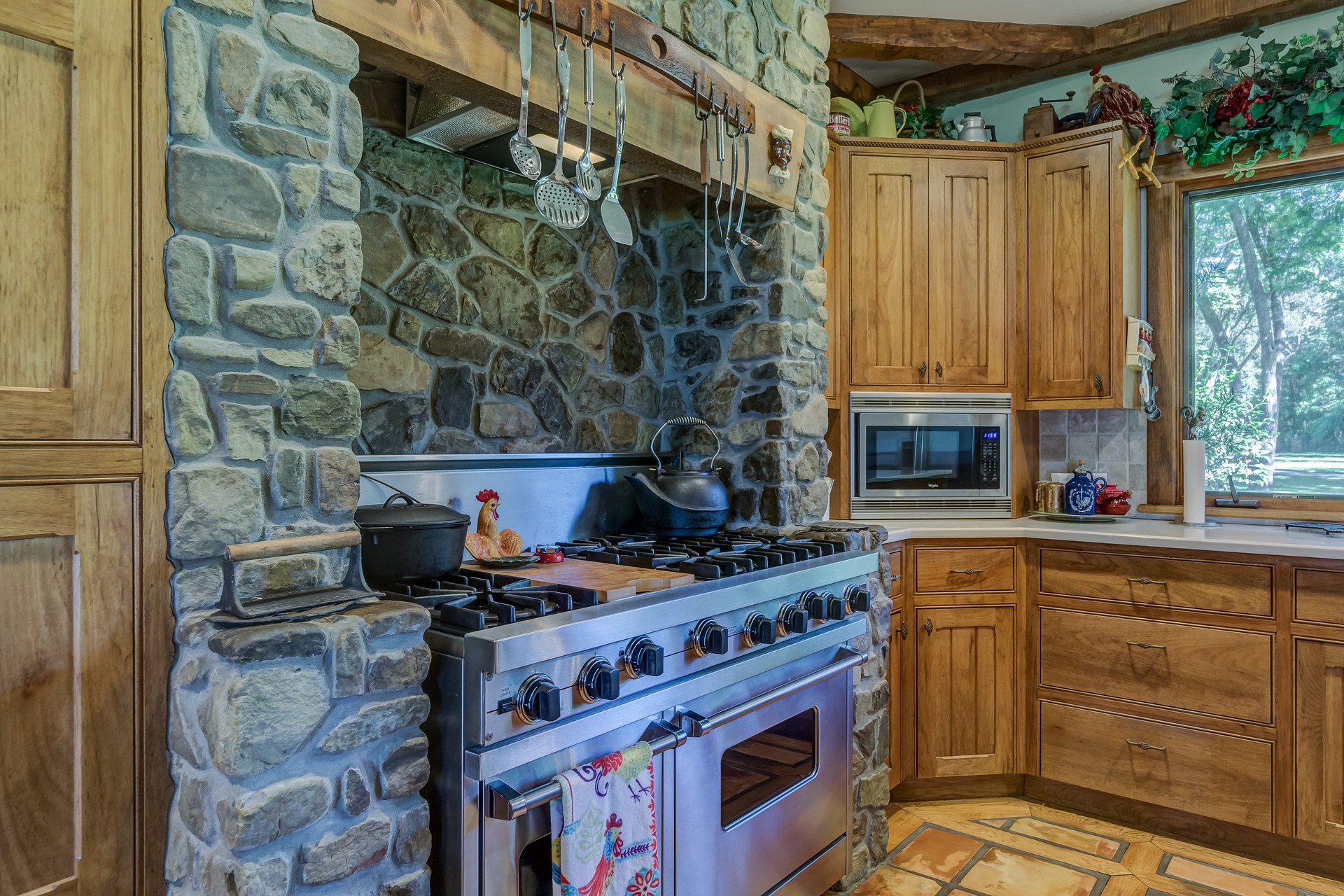Social Links Widget
Click here to edit the Social Media Links settings. This text will not be visible on the front end.
How to Save Energy in your Home


With the increased emphasis on global warming in recent years, combined with rising energy costs, more and more people are asking what they can do to make their homes more energy efficient. Energy conservation can be as simple as closing your curtains at night, changing a light bulb, turning down your thermostat, or closing the fireplace damper. Many of the most inexpensive solutions quickly pay for themselves in conservation, which you ultimately benefit from when you get your power bill.
One of the biggest ways you can conserve energy is to take advantage of “off-peak” hours. This is a step that everyone can take because it simply involves shifting your power use of major appliances, such as washing machines, dryers, and dishwashers. Puget Sound Energy recommends using these appliances outside of peak hours—peak hours are between 6am-10am and 5pm-9pm. Studies show that by shifting a portion of your energy use, consumers can significantly lower wholesale electricity prices, which saves everyone money in the long run.
Another way you can save energy is by washing your clothes in cold water and only running full loads. When using the dryer, toss in a couple of dry towels with your clothes to help speed up the drying process. It’s also important to clean the lint trap in your dryer after every load and make sure the dryer hose and vent are clear.
There are several steps you can follow to reduce your home’s demand on heating during the winter months. Conventional measures, such as setting back your thermostat, are effective at reducing energy consumption. It is recommended that you keep your thermostat set between 65 and 72 degrees during the winter months. Keep in mind that by simply lowering your thermostat one degree, your furnace will use seven percent less energy overall. It’s also important to clean your furnace filter frequently—doing so will enable your heating system to run more efficiently and cost-effectively.
It’s estimated that lighting accounts for 10 percent of your overall home energy bill, so another way you can conserve is by using energy-saving fluorescent light bulbs, known as CFL light bulbs. CFLs use approximately one-quarter of the energy of equivalent incandescent bulbs, they give off warm, indirect light, and they last ten times longer than average light bulbs. When shopping for CFLs, look for those with the Energy Star label on them—this ensures that you’re purchasing a product that has been approved by the U.S. Environmental Protection Agency (EPA) and the U.S. Department of Energy (DOE).
For more information about energy conservation, please visit www.energystar.org.
For more information on Windermere Evergreen, please contact us here.
Questions to ask your home inspector


To get a quality home inspection, ask the right questions before you put your inspector to work. Here are some of the basics.
What does your inspection cover?
Insist that you get it in writing. Then make sure that it’s in compliance with state requirements and includes the items you want inspected.
How long have you been in business?
Ask for referrals, especially with newer inspectors.
Are you experienced in residential inspections?
Residential inspection is a unique discipline with specific challenges.
Do you do repairs or make improvements based on the inspection?
Some states and/or professional associations allow the inspector to perform repair work on problems uncovered in an inspection. If you’re considering engaging your inspector to do repairs, be sure to get referrals.
How long will the inspection take?
A typical single-family dwelling takes two to three hours.
How much will it cost?
Costs can vary depending upon a variety of things, such as the square footage, age and foundation of the house.
What type of report will you provide and when will I get it?
Ask to see samples to make sure you understand his reporting style. Also make sure the timeline works for you.
Can I be there for the inspection?
This could be a valuable learning opportunity. If your inspector refuses, this should raise a red flag.
Are you a member of a professional home inspector association? What other credentials do you hold?
Ask to see their membership ID; it’s some assurance.
Do you keep your skills up-to-date through continuing education?
An inspector’s interest in continuing education shows a genuine commitment to performing at the highest level. It’s especially important with older homes or homes with unique elements.
Any other good questions to ask? Post yours now!
For more information on Windermere Evergreen please contact us here.
Going from homeowner to home seller


How do we transition from the mindset of a homeowner to a home seller? Homes bring us shelter, comfort and are a place to express our individuality. But when it’s time to move on, that same home will now be the financial springboard to the next chapter in our lives.
We start by letting go of the home layer by layer.
Both buyer and seller benefit when the seller- perhaps with some judicious coaching from their skilled Realtor- peels away those things that made their home uniquely theirs. In essence, the serious packing begins once the decision has been made to sell; bookcases and closets should only suggest their function with a few items, rather than store seasons and years worth of books and clothes. Carefully removing prized collections and family photos is also vital- nothing should distract the buyer from seeing the house, and seeing themselves in it.
Personal colors are just as important to remove as objects. After all, if you were serving ice cream to a few thousand people (that’s how many will see your house photographed online)- would you serve them mango flavor? It’s a lot more likely you would choose vanilla- and that’s pretty much what the color of your walls should be- neutral or deep neutral tones.
The last touch is a good deep cleaning- ask your REALTORtm if they have the name of a reputable company.
The seller can then replace those familiar objects with a fresh new welcome mat at the front door.
This process allows the buyer the visual and emotional space to move in.
This process allows the seller to move on.
For more information on Windermere Evergreen please contact us here.
Considering becoming a landlord? How to evaluate whether to rent or sell your property

 Over the last few years, we have seen an increase in homeowners choosing to become landlords rather than placing their homes on the market. In deciding whether or not becoming a Landlord is right for you, there are a number of factors to consider, but primarily they fall into the following three categories: Financial Analysis, Risk and Goals.
Over the last few years, we have seen an increase in homeowners choosing to become landlords rather than placing their homes on the market. In deciding whether or not becoming a Landlord is right for you, there are a number of factors to consider, but primarily they fall into the following three categories: Financial Analysis, Risk and Goals.
The financial analysis is probably the easiest of the three to assess. You will need to assess if you can afford to rent your house. If you consider the likely rental rate, vacancy rate, maintenance, advertising and management costs, you can arrive at a budget. It is important both to be reasonably correct in your assumptions and to have enough reserves to cover cash-flow needs if you’re wrong. The vacancy rate will be determined by the price at which you market the property. Price too high and you’re either vacant or accepting applicants that, for some reason, couldn’t compete for more competitively priced homes. Price too low and you don’t achieve the revenue you should. If you want to try for the higher end of an expected range, understand that the cost may be a vacant month. It is difficult to make up for a vacant month.
Consider the other costs renting out your property could accrue. If you have a landscaped or large yard, you will likely need to hire a yard crew to manage the grounds. Other costs could increase when you rent your home, such as homeowner’s insurance and taxes on your property. Also, depending on tenant turn-over, you may need to paint and deal with maintenance issues more regularly. Renting your home is a decision you need to make with all the financial information in front of you. You can find more information about the hidden costs of renting here.
If your analysis points to some negative cash-flow, that doesn’t necessarily mean that renting is the wrong option. That answer needs to be weighed against the pros and cons of alternatives (i.e., selling at the price that would actually sell), and some economic guesswork about what the future holds in terms of appreciation, inflation, etc. to arrive at an expectation of how long the cash drain would exist.
Risk is a bit harder to assess. Broadly though, it’s crucial to understand that if you decide to lease out a home, you are going into business, and every business venture has risks. The more you know, the better you can mitigate those risks. One of the most obvious ways of mitigating the risk is to hire a management company. By hiring professionals, you decrease your risk and time spent managing the property (and tenants) yourself. However, this increases the cost. So, as you reduce your risk of litigation, you increase your risk of negative cash-flow, and vice versa… it’s a balancing act, and the risk cannot be eliminated; just managed and minimized.
In considering Goals, what do you hope to achieve by renting your property? Are you planning on moving back into your home after a period of time? Will your property investment be a part of your long-term financial planning? Are you relocating or just hoping to wait to sell? These are all great reasons to consider renting your home.
Keep in mind that renting your family home can be emotional. Many homeowners LOVE the unique feel of their homes. It is where their children were raised, and they care more about preserving that feel than maximizing revenue. That’s OK, but it needs to be acknowledged and considered when establishing a correct price and preparing a cash flow analysis. Some owners are so attached to their homes that it may be better for them to “tear off the band-aid quickly” and sell. The alternative of slowly watching over the years as the property becomes an investment instead of a home to them may prove to be more painful than any financial benefit can offset.
In the process of considering your financial situation, the risks associated with becoming a landlord, and the goals you hope to achieve with the rental of your property, – ask yourself these questions. Before reaching a conclusion, it’s also a good idea to familiarize yourself with the landlord-tenant-law specific to your state (and in some cases, separate relevant ordinances in the city and/or county that your property lies within) and to do some market research (i.e. tour other available similar rentals to see if your financial assumptions are in line with the reality of the competition across the street). If you are overwhelmed by this process, or will be living out of the region, seek counsel with a property management professional. Gaining experience the hard way can be costly.
For more information on Windermere Evergreen please contact us here.
Tiny Homes Promote Quality over Quantity

 Are you fascinated about downsizing? Do you love small places? Does a simple and serene ambiance sound like music to your ears? Then hop on the bandwagon and get yourself a ‘tiny house’ because we all know the best things come in small packages.
Are you fascinated about downsizing? Do you love small places? Does a simple and serene ambiance sound like music to your ears? Then hop on the bandwagon and get yourself a ‘tiny house’ because we all know the best things come in small packages.
What’s a tiny house? Tiny houses have recently hit the real estate market by storm. The to-go models typically range from 100-175 square feet, while the larger, more permanent cottage styles are usually around 250 to 500 square feet. With a multitude of floor plan choices that include full kitchens and bathrooms, heating, AC, and a reasonable range of prices, a tiny house couldn’t be more practical.
What tiny house are you? The best part about tiny homes is that you get to pick whichever one compliments your lifestyle and needs the most. Are you more of a beach house or cabin in the woods type of person? What about a pool house for your backyard or an art or yoga studio? Or maybe you’re guilty of always wishing there was somewhere else for your mother-in-law to stay while she’s in town. On the other hand, if you’re looking for something less permanent, then a to-go model might be more your speed. You can grab your house whenever you are feeling an itch of wanderlust and head out on the open road. You can park it near the coast or somewhere concealed for a relaxing and quiet weekend. If being on the water is more your thing, there are even tiny floating homes.
Who owns one? The small, but rapidly growing number of tiny house homeowners can be found all over the country. People are shedding their square footage and downsizing from coast to coast. In 2013, the tiny home movement saw 2,600 residents, while 2014 currently has about 4,000 residents and growing. People are joining the tiny house movement for various reasons. Some want to downsize due to environmental or financial concerns, others are looking for more time and freedom in their lives. Having tiny homes encourages people to live beyond their own walls and spend more time in the outdoors and their community. Tiny homes have redefined the American dream by promoting quality over quantity.
If you think you might want a tiny house as your primary home, the only sacrifice is space; the gains however, are countless. Tiny homes come in all shapes and sizes and can be modern, minimal, or luxurious. These tiny homes are a fun and exciting endeavor to which you can easily add your own flavor. And because you can get a prefab tiny home delivered right to your door, the home buying process is as simple as the homes themselves.
If you want to check out more house styles you can visit our Tiny House page on Pinterest.
For more information on Windermere Evergreen please contact us here.
Selling your home: A step-by-step approach

 Whether you’re starting a family, moving for your job, getting ready to retire or embarking on a new chapter in your life, when your home no longer suits your current situation, it’s time to think about selling it. Although this can be a bit complicated, with the help of your agent, you can minimize the hassles, get the best possible price, and shorten the distance between “For Sale” and “Sold”.
Whether you’re starting a family, moving for your job, getting ready to retire or embarking on a new chapter in your life, when your home no longer suits your current situation, it’s time to think about selling it. Although this can be a bit complicated, with the help of your agent, you can minimize the hassles, get the best possible price, and shorten the distance between “For Sale” and “Sold”.
Price it right
If you want to get the best possible price for your home and minimize the time it stays on market, you need to price it correctly from the beginning. Your agent can give you a clear picture of your particular market and can provide you with a comparative market analysis (CMA). A CMA contains detailed information on comparable homes in your area, including square footage, date built, number of bedrooms, lot size and more. It lists pending sales and houses sold in your area in the past six months, along with their actual sale prices.
By comparing your home to similar homes in your neighborhood and reviewing their list prices and actual selling prices, your agent can help you arrive at a fact-based assessment of your home’s market price.
Prepping your house for sale
You want to make a positive first impression when you list your home for sale. Here are some tips on how to enhance your home’s best features:
Work on your curb appeal
Get rid of moss on your roof. Power wash your front walk, porch, deck and patio. Mow the lawn, trim the hedges, weed the flowerbeds and add spots of color with container plants. Clean all the windows inside and out and repair them if they don’t open and close easily.
Refresh, repair and repaint
This goes for interiors and exteriors. If you see peeling paint, add a fresh coat. If your living room is bright lime green, consider painting it a more neutral shade. Make necessary repairs. You don’t want to turn off a buyer with a dripping faucet, a broken doorbell, a clogged downspout or a cracked windowpane.
Deep-clean, from floor to ceiling
Clean rugs, drapes and blinds and steam-clean carpeting. Get rid of any stains or odors. Make sure kitchen appliances, cupboards and counters are spotless and that bathrooms shine.
Declutter and depersonalize
Clean, light-filled, expansive rooms sell houses. So be sure to downsize clutter everywhere in your home, including cupboards, closets and counters. You might also consider storing some furniture or personal items to make rooms look more spacious. Take advantage of views and natural light by keeping drapes and blinds open.
Make an impact on the market
If you want to sell your home, you need to go where the buyers are, and today they’re on the Internet. According to the National Association of REALTORS®, in 2012 90 percent of homebuyers used the Internet as an information source, and for 41 percent of homebuyers it was the first step in the home-buying process.
By working with your agent, you can list your home on Windermere.com and other relevant websites. He or she will put together a listing with attractive photos, an appealing description and all the information a potential buyer needs. Your agent will also market your house, which may include advertising, direct mail and open houses.
Show your house
After you’ve taken care of all the repairs and cleaning tasks outlined above, your home is ready for its close-up: an open house. It’s actually best for you and your family to leave when potential buyers are present so they can ask your agent questions. But before you go, you might want to:
· Take your pets with you
· Open the shades and turn on the lights
· Light a fire in the gas fireplace
· Bake cookies
· Keep money, valuables and prescription drugs out of sight
Be flexible in negotiating
If you get offers below your asking price, there are a number of strategies you can try in your counteroffer. You could ask for full price and throw in major appliances that were not originally included in the asking price, offer to pay some of the buyer’s fees, or pay for the inspection. You could also counter with a lower price and not include the appliances. If you receive multiple offers, you can simply make a full-price counter.
Your agent can suggest other strategies as well and help you negotiate the final price.
If your house doesn’t sell or you’ve received only lowball offers, ask your agent to find out what these prospective buyers are saying about your house. It might reveal something you can consider changing to make your house more appealing in the future.
Breeze through your inspection
When a buyer makes an offer on your home, it’s usually contingent on a professional inspection. A standard inspection includes heating and cooling, interior plumbing and electrical systems; the roof, attic and visible insulation; walls, ceilings, floors, windows and doors; and the foundation, basement and visible structure. The inspector will be looking for cracks in cement walls, water stains and wood rot.
You can always opt for having an inspection done prior to putting your house on the market, so you can address any potential problems in advance. Your agent can give you several recommendations for qualified inspectors in your area.
Close with confidence
Whether this is your first time or your tenth, your agent can help guide you though the complex process of selling a home. Moreover, he or she can answer any questions you may have about legal documents, settlement costs and the status of your sale.
Your agent’s expertise, resources and extensive network also work for you when you’re buying your next house. Even if you’re moving out of the area, your agent can refer you to a professional agent in your new community.
If you have questions about the buying or selling process, or are looking for an agent in your area, we have professionals that can help you. Contact us here.
In the market to buy a home? Make a list and check it twice.

 Are you thinking of buying a home, and you aren’t sure exactly where to start? Here is a checklist to help you get ready to make your home dreams come true:
Are you thinking of buying a home, and you aren’t sure exactly where to start? Here is a checklist to help you get ready to make your home dreams come true:
Decide where you want to live! Are you where you want to be? Generally, you will want to plan on staying in your home for at least 5-7 years in order for you investment to pay off, so it’s important to look at homes in an area that will meet your needs over the long term.
Explore the market. Once you know where you will be looking for homes, you can start to explore. Get to know the neighborhoods, the school districts, the local businesses, and community amenities.
Make a list of what you need and want. Create a list of the things in a home that are most important to you. Like the number of bedrooms/bathrooms, home features, commute times, etc. Then make a list of things that you would like to have, but aren’t as important, such as a fireplace, a large back yard, or a pool. It may help you to create a Pinterest board with your favorite home features that you can share with your agent when you’re ready to start looking.
Search for comparable houses in your market. Once you know where you’d like to buy and what type of house you’re looking for, you can start to realistically assess how much it will cost. Use an online search tool like windermere.com to see what’s for sale in your preferred neighborhood(s) and the value of the homes.
Take a good look at your finances. Once you have an idea of what homes cost, you can start figuring out how much money you need for a down payment, monthly mortgage payments, property taxes, etc. Make sure to check your credit score to ensure that everything is in order before applying for a home loan.
Develop your financial plan. Determine how much you need to save for your down payment and create a plan and timeline to achieve this goal. Outstanding debt can drag down your credit score, so make sure that paying down debt is a part of your plan.
Find a real estate agent! Once you’ve met your financial goals, it’s time to find a real estate agent. The best place to start is by asking friends and family for a referral. You can also search on real estate websites, like windermere.com, to find an agent that specializes in the area you are looking to live.
Get pre-approved for your home loan. Your agent should be able to refer you to a mortgage representative who can assist with the financing of your new home. The first step is to get pre-approved so that you know exactly how much home you can afford. Not only does this allow you to refine your home search, but it can also give you a competitive advantage when there are multiple buyers bidding on the same property.
Start shopping! This process involves everything from searching for homes online to visiting open houses on the weekends. But perhaps the most important part of this process is going on a good-old-fashioned home tour with your real estate agent. Looking for homes online lets you search more efficiently, but there’s nothing like seeing the home – and its surroundings – first hand.
The bidding process. The bidding process differs from region to region and season to season, but ultimately you should look to your agent to help you develop a plan based on your priorities and financial abilities. Depending on the market where you’re buying, there could be multiple buyers bidding for the same home, so it’s a good idea to have a well thought out strategy ahead of time.
Offer acceptance & earnest money. Once a seller accepts your offer you are required to put down an earnest money deposit to show that you are committed to purchasing the house. This money is held jointly by the seller and the buyer in a trust or escrow account. The earnest money goes towards your down payment and closing costs upon the closing of the home sale.
Home inspection. Most home sales are pending until a home inspection is completed. This is when a home inspector checks the condition of a home, such as the foundation, roof, windows, insulation, electrical, and heating components. If a home inspection turns up the need for repairs, it can end up being a tool for re-negotiations with the seller.
Home appraisal. This is an all-important step to getting the financing you need for your new home. An appraisal is performed to assess the true value of a home, which in turn, determines how much a lender is willing to give you to buy it. Appraisals protect banks from getting stuck with property that’s worth less than they’ve invested. And it protects you from paying too much for a house simply because it was love at first sight.
Purchase your home insurance. A standard homeowner’s insurance policy typically covers your home, your belongings, injury or property damage to others, and living expenses if you are unable to live in your home temporarily because of an insured disaster.
Closing! The closing marks the final step of the home purchase process. This is when the deed to a property is legally transferred from the seller to the buyer who then takes possession of the home. In simple terms, this is when you get the keys to your new home and you can officially move in.
If you have any additional questions about the home buying process, contact a local real estate agent.
Six Key Factors That Affect the Sales Price of Your Home


Pricing a home for sale is not nearly as simple as most people think. You can’t base the price on what the house down the street sold for. You can’t depend on tax assessments. Even automatic valuation methods (AVMs), while useful for a rough estimate of value, are unreliable for purposes of pricing a home for sale.
AVMs, like those used by Zillow and Eppraisal, have been used for many years by banks for appraisal purposes. They are derived from algorithms based on past sales. But producers of AVMs agree that they are not accurate indicators of home value. For example, Zillow.com states, “Our data sources may be incomplete or incorrect; also, we have not physically inspected a specific home. Remember, the Zestimate is a starting point and does not consider all the market intricacies that can determine the actual price a house will sell for. It is not an appraisal.”
So what does Zillow recommend sellers do instead? The same thing the real estate industry has been advising for decades: Ask a real estate agent who knows your neighborhood to provide you with a comparative market analysis. To accomplish that, I typically consider the following factors—plus others, depending on the house:
Location
The location of your home will have the biggest impact on how much it can sell for. Identical homes located just blocks apart can fetch significantly different prices based on location-specific conditions unique to each, including: traffic, freeway-access, noise, crime, sun exposure, views, parking, neighboring homes, vacant lots, foreclosures, the number of surrounding rentals, access to quality schools, parks, shops, restaurants and more.
Recommendation: Be willing to price your house for less if it’s located in a less desirable area or near a neighborhood nuisance.
Market
Another major factor that also can’t be controlled is your local housing market (which could be quite different from the national, state or city housing markets). If there are few other homes on the market in your local area (a situation known as a “sellers market”), you may be able to set a higher price. However, if there’s a surplus of homes like yours for sale (a “buyer’s market”), your pricing will also reflect that.
Recommendation: If it’s a buyer’s market and you can delay selling your home until things change, you should consider doing so. If you can’t wait, be willing to price your home extremely competitively, especially if you are in a hurry to sell.
Condition
The majority of buyers are not looking to purchase fixer-uppers, which is why any deferred maintenance and repair issues can also significantly impact the selling price of your home. When your home’s condition is different than the average condition of homes in your location, AVMs tend to produce the widest range of error.
Recommendation: Hire a professional home inspector to provide you with a full, written report of everything that needs upgrading, maintenance or repair, then work with your real estate agent to prioritize the list and decide what items are worth completing before the property is listed for sale, and what should be addressed through a lower list price. Also, some defects are best addressed during negotiations with buyers.
Widespread appeal
If you want to sell your home quickly and for the most money, you have to make it as appealing as possible to the largest pool of prospective buyers. The more universally attractive it is, the greater the interest and the faster competing offers will come.
Recommendation:
Hire a professional home stager (not a decorator) to temporarily stage the interior of your home. Also spend time making the exterior look its best: address any peeling paint, make sure the front door/ door hardware is attractive, prune bushes and trees, remove old play equipment and outdoor structures, etc.
Compare homes
The only neighboring homes that should be used to estimate the value of your home are those that have been carefully selected by a real estate professional with special training, access to all sales records, and in-depth knowledge of the neighborhood.
Recommendation: If you’re considering selling your home, ask your real estate agent to recommend a professional appraiser.
Searchability
When working with a prospective buyer, most real estate agents will search the available inventory only for the homes priced at (or less than) their client’s maximum, which is typically a round number. If you home is priced slightly above or below that amount (e.g., $510,000 or $495,000), it will appear in fewer buyer searches.
Recommendation: Be willing to adjust your selling price to maximize visibility.
Periodic price adjustments
Pricing a home isn’t a set-it-and-forget-it proposal. As with any strategy, you need to be prepared to adapt to fast-changing market conditions, new competition, a lack of offers and other outside factors.
Recommendation: After listing your house, be ready to adjust your asking price, if necessary. If you are looking for a qualified Real Estate Agent please contact us here.
Selling Your Home? Go Through This Safety Checklist With Your Real Estate Agent

 Selling your home can be stressful for many reasons. Not only are you trying to get the best financial return on your investment, but you might also be working on a tight deadline. There’s also the pressure to keep your home clean and organized at all times for prospective buyers. One thing you can be sure of when selling your home is that there will be strangers entering your space, so it’s important for you and your agent to take certain safety precautions.
Selling your home can be stressful for many reasons. Not only are you trying to get the best financial return on your investment, but you might also be working on a tight deadline. There’s also the pressure to keep your home clean and organized at all times for prospective buyers. One thing you can be sure of when selling your home is that there will be strangers entering your space, so it’s important for you and your agent to take certain safety precautions.- Go through your medicine cabinets and remove all prescription medications.
- Remove or lock up precious belongings and personal information. You will want to store your jewelry, family heirlooms, and personal/financial information in a secure location to keep them from getting displaced or stolen.
- Remove family photos. We recommend removing your family photos during the staging process so potential buyers can see themselves living in the home. It’s also a good way to protect your privacy.
- Check your windows and doors for secure closings before and after showings. If someone is looking to get back into your home following a showing or an open house, they will look for weak locks or they might unlock a window or door.
- Consider extra security measures such as an alarm system or other monitoring tools like cameras.
- Don’t show your own home! If someone you don’t know walks up to your home asking for a showing, don’t let them in. You want to have an agent present to show your home at all times. Agents should have screening precautions to keep you and them safe from potential danger.
Talk to your agent about the following safety precautions:
- Do a walk-through with your agent to make sure you have identified everything that needs to be removed or secured, such as medications, belongings, and photos.
- Go over your agent’s screening process:
- Phone screening prior to showing the home
- Process for identifying and qualifying buyers for showings
- Their personal safety during showings and open houses
- Lockboxes to secure your keys for showings should be up to date. Electronic lockboxes actually track who has had access to your home.
- Work with your agent on an open house checklist:
- Do they collect contact information of everyone entering the home?
- Do they work with a partner to ensure their personal safety?
- Go through your home’s entrances and exits and share important household information so your agent can advise how to secure your property while it’s on the market.
Your safety, as well as that of your agent and your home, is of paramount importance when selling a property. For more information, visit:
http://www.mercurynews.com/los-gatos/ci_26509084/realtors-issue-safety-tips-folks-who-are-selling
For more information on Windermere Evergreen please contact us here.
How to Hire a Home Inspector

 Is this year you make the leap to buy your first home?
Is this year you make the leap to buy your first home?
A home is a major investment and, for many people, the greatest financial asset they have. With so much at stake, it makes sense to do what you can to protect your financial interest. Getting a home inspection is a smart, simple way to do just that.
When you make a written offer on a home, insist that the offer provide that your contract is contingent on a home inspection conducted by a qualified inspector. You’ll have to pay for the inspection yourself, but an investment of a few hundred dollars could save you thousands of dollars and years of headaches. If you’re satisfied with the results of the inspection and are assured that the home you’re purchasing is in good shape, you can proceed with your transaction, confident that you are making a smart purchase.
Hire a professional
When you are ready to hire a home inspector, be sure they’re licensed in your state. They should be able to provide you with their license number, which you can use to verify their status with the appropriate government agency. The best way to find an inspector is to ask your real estate agent for a recommendation. Even among licensed and qualified home inspectors, there can be a difference in knowledge, performance, and communication skills, so it’s a good idea to do some research to ensure that you get the type of inspection you need.
What to ask your home inspector
Ask the right questions to make sure you are hiring the right professional for the job.
What does your inspection cover?
Insist that you get this information in writing. Then make sure that it’s in compliance with state requirements and includes the items you want inspected.
How long have you been in the business?
Ask for referrals, especially with newer inspectors.
Are you experienced in residential inspections?
Residential inspection in a unique discipline with specific challenges, so it’s important to make sure the inspector is experienced in this area.
Do you make repairs or make improvements based on inspection?
Some states and/or professional associations allow the inspector to perform repair work on problems uncovered in an inspection. If you’re considering engaging your inspector to do repairs, be sure to get referrals.
How long will the inspection take?
A typical single-family dwelling takes two to three hours.
How much will it cost?
Costs can vary depending upon a variety of things, such as the square footage, age, and foundation of the house.
What type of report will you provide and when will I get it?
Ask to see samples to make sure you understand his or her reporting style. Also make sure the timeline works for you.
Can I be there for the inspection?
This could be a valuable learning opportunity. If your inspector refuses, this should raise a red flag.
Are you a member of a professional home inspector association? What other credentials do you hold?
Ask to see their membership ID; it provides some assurance.
Do you keep your skills up to date through continuing education?
An inspector’s interest in continuing education shows a genuine commitment to performing at the highest level. It’s especially important with older homes or homes with unique elements.
What doesn’t a home inspection cover?
For a variety of reasons, some homes will require specialty inspections that are not covered by a typical home inspection. A specialty inspection might include such items as your home’s sewer scope, septic system, geotechnical conditions (for homes perched on steep slopes or where there are concerns regarding soil stability) or underground oil storage tank. If you have any questions about whether or not your home needs a specialty inspection, talk to your real estate agent.
 Facebook
Facebook
 X
X
 Pinterest
Pinterest
 Copy Link
Copy Link
